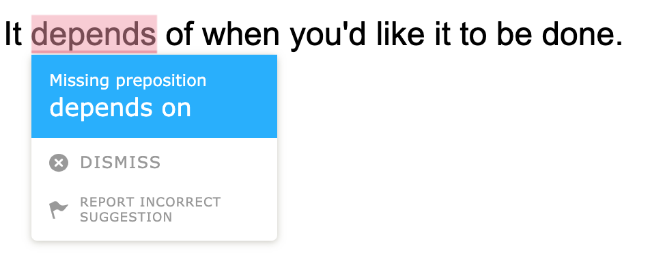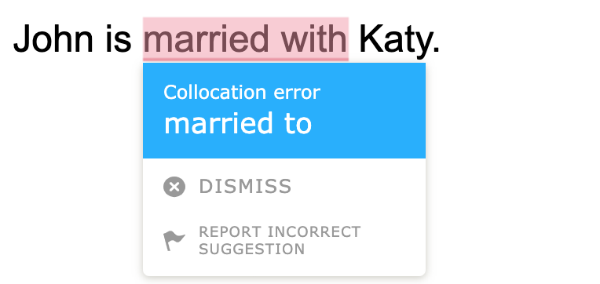7 common mistakes when using prepositions in English and how to avoid them
- Transfer

In English, prepositions are used to connect people, objects, time and places within a sentence. Usually these are short words like at, for, in, on and to, which, despite their size, play a crucial role, and it is not always easy to use them correctly.
I found an interesting post analyzing common mistakes when using prepositions, and prepared an adapted translation of it.
1. Arrive at vs. Arrive in vs Arrive to
If in a sentence someone arrives somewhere - for example, in a city, country or some other place - then you need to use the phrase “arrive at”.
Examples:
Bad : When we arrived to the stadium, the game had already started.
Good : When we arrived at the stadium, the game had already started.
2. Using on with days and dates
In the case of a date, the preposition on is used in English .
Example:
It's my birthday on June 2nd.
However, if we are not talking about a specific date, and you want to highlight, for example, the month in which you have a birthday, then the preposition in will correctly be used .
Examples
:Bad : My birthday is on July!
Good : My birthday is in July!
3. Depends on
Many people for whom English is not their native language make mistakes when using the “depends on” construct. When you need to describe a dependency, the preposition on is used .
Examples:
Bad : It depends of when you'd like it to be done.
Good : It depends on when you'd like it to be done.

4. at night
When something happens in the morning, afternoon or evening, the English construct in the morning / afternoon / evening is used. But when describing nightly events, the preposition at is always used .
Examples:
Bad : Claire often goes out in the night.
Good : Claire often goes out at night.
5. for + time period
For the description of time periods the preposition for is used :
Examples:
Bad : I've been working for this company since three years.
Good : I've been working for this company for three years.

At the same time, since :
Examples:
I have lived in Boston since March.
We have not talked since our last meeting.
6. married to
In the case when we want to describe the marital status of a person, it is correct to use the phrase is married to - with the pretext to .
Examples:
Bad : John is married with Katy.
Good : John is married to Katy.

If we are talking about plans to get married, then the pretext to is also used here :
My friend Peter is getting married to Jane next month.
At the same time, people can get married without any pretexts at all.
Good: Wendy is marrying her fitness coach.
7. Ask + preposition
Another difficult moment is the use of prepositions with the word ask in cases where there is also a mention of a person or object to which the action of the verb is addressed.
Examples:
Bad : I asked to Tom to get this done.
Good : I asked Tom to get this done.
Important: “to” is used before the verb, and not after “ask.”
